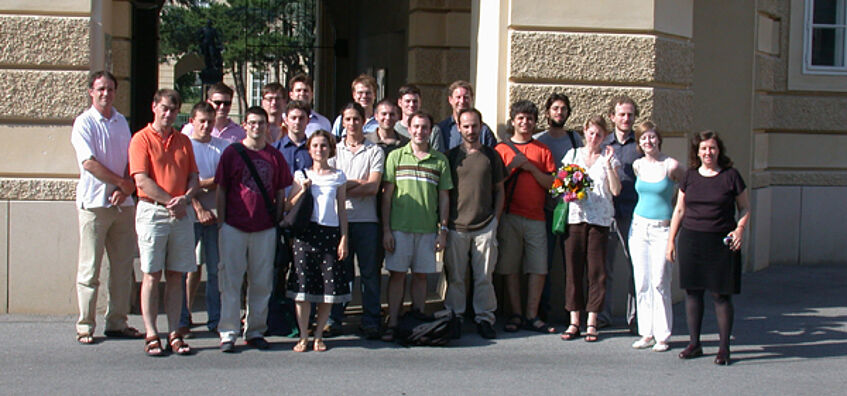USS-SWC 2005 – Chance and Necessity
The 5th Vienna Summer University was held on 18–29 July 2005.
Lecturers
- Theodore M. Porter (University of California, Los Angeles, USA)
- Wolfgang Spohn (University of Konstanz, Germany)
- Deborah R. Coen (Harvard University, USA)
- Franz Huber (University of Konstanz, Germany)
A Historical Inquiry into Chance and Necessity
Chance and probability were never purely mathematical topics. In the European tradition, they were full of religious and philosophical significance from at least the period of the Renaissance. Since then they have become increasingly integral to natural science, and at the same time to social, political, medical, and economic affairs. The course will survey this large historical trajectory by focusing on some themes and moments of particular interest and significance.
Topics
- Subjective and objective probabilities
- Statistical models in the sciences. statistics challenged some basic ideals of scientific reasoning
- A universe or chance. Statistics meant the taming of chance, order out of chaos
- In pursuit of objectivity. In the twentieth century, statistics became above all a set of mathematical strategies of scientific inference, which then were linked to canons of experimental design. In this guise, statistics contributed to a reshaping of public policy, and with it, of the public role of the scientist
- Markets and gambling. The science of reasoning under uncertainty, has been applied in the later twentieth century with great ambition to business and investing
A Systematic Inquiry into Chance and Necessity
The notion of probability is ubiquitously used in physical and social sciences. Despite its familiarity it is still ill understood. This holds in particular for the notion of chance or objective probability; various forms of frequency and propensity theories are designed to account for it, but none is particularly well received. The notion of natural or causal necessity is continuously used in the sciences, but almost entirely left implicit, whereas philosophers have given up on lawlikeness and widely diverge on causation.
The course attempts to accomplish three tasks: First, it intends to give an overview over the problematic situation. There is a perfect parallel between the case of chance and the case of necessity; to bring out this parallel is the second task of the course. Moreover, the basic reason for the problems lies in the fact that the objectivity involved in chance and necessity is still ill understood. A broadly projectivist account of this objectivity seems to be most revealing. So, the third goal is to give a precise account of the projectivist account of the objectivity of chance and natural necessity.
Topics
- General introduction into modality
- Subjective probability
- Objective probability: an overview
- David Lewis' conception of objective probability
- A projectivistic reconstrual of this conception
- Objectivistic conceptions of natural laws and causation
- Foundations for a subjectivistic account: ranking theory
- A ranking-theoretic account of laws of nature and causation
- How to objectify this account
- The probabilistic-deterministic parallel between chance and necessity
